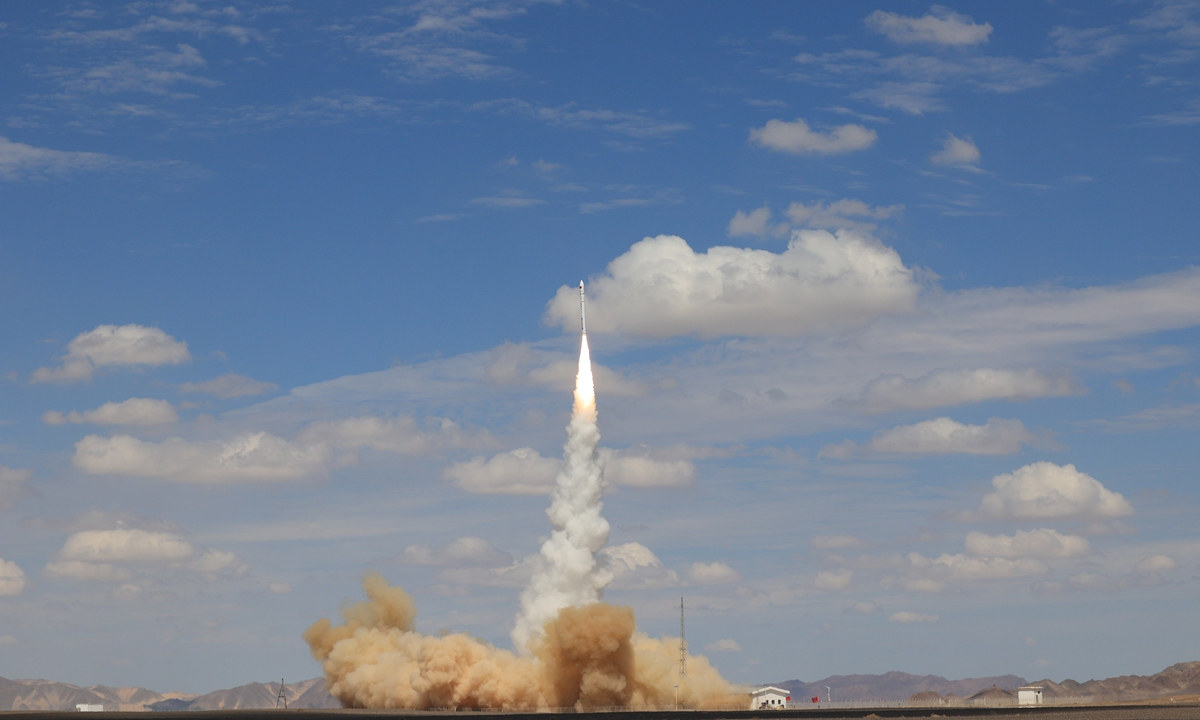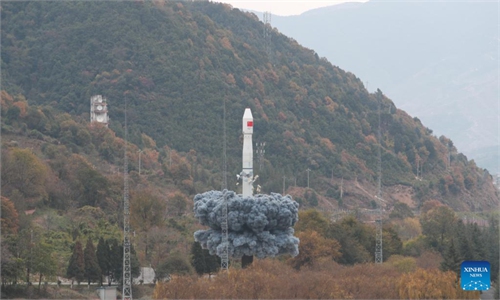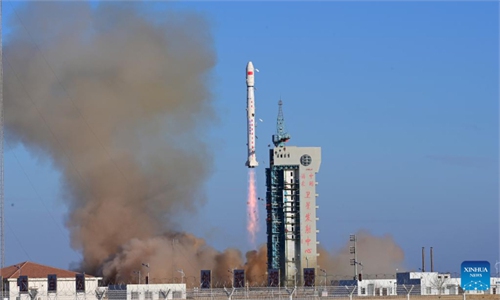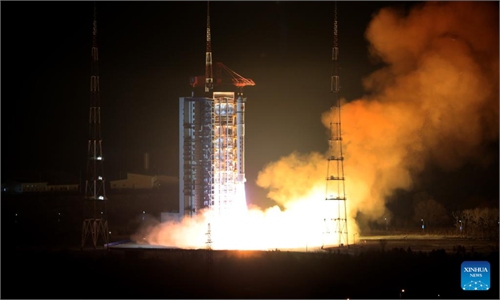
Chinese private aerospace venture Galactic Energy Space Co successfully launched Ceres-1 (Y3) carrier rocket from Jiuquan Satellite Launch Center in Northwest China's Gansu Province on August 9,2022. Photo: Hu Jun & Li Yuxiang
China's private company GalaxySpace is accelerating the research and development of flat-panel stackable satellites, for rapid construction of a satellite internet constellation.
GalaxySpace said the design enables dozens of satellites to be stacked on top of each other like tablet personal computers and be launched at the same time on a single rocket. It can improve the use efficiency of a rocket and shorten the construction period.
Satellite internet will provide extensive broadband connection with satellite communication technology. It is to use the satellites in space playing the role of the base station on the ground for the terrestrial network connection. Each satellite is a mobile base station in space. It can provide users worldwide with high bandwidth, flexible, and convenient internet access service.
In addition, each stackable satellite can carry a solar wing, which features small size, lightweight, and modularization, to help save launch costs, the company said.
The Beijing-based satellite maker was put into operation in April 2018. It aims to build a broadband satellite constellation deployed in low-Earth orbit and create a global 5G network. On March 5, 2022, GalaxySpace launched six broadband communication satellites from the Xichang Satellite Launch Center, which verified the networking technology and service capability of the internet constellation.
If the development goes well, the company's stackable satellites are expected to be launched early next year, said Chang Ming, chief commander of the satellite project.
Xinhua



